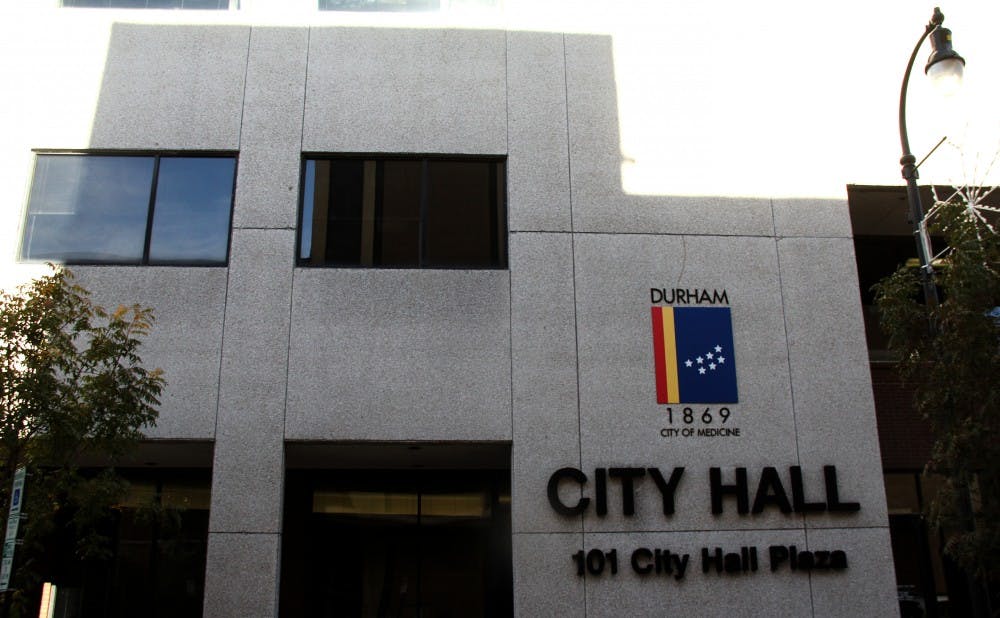Duke Student Government representatives are working to increase Duke engagement with Durham affairs.
Recognizing the changing politics in North Carolina, as well as student interest for increased involvement in local and regional affairs, DSG senators are working to help create more courses that focus on Durham history and politics. Sophomore Mousa Alshanteer, senator for Durham and regional affairs, worked in conjunction with freshman James Ferencsik, senator for academic affairs, to gauge faculty interest and develop a plan moving forward.
“Too often…Duke becomes a kind of bubble," said Orin Starn, chair and professor of cultural anthropology. "Students don’t leave campus. They go off to study about Africa, about Asia…but aren’t really as aware of cultural issues, historical issues, political challenges closer to home.”
The University used to offer many classes on local and state governments, the history of Duke and the history of the region, including the involvement in the civil rights movement, noted Alshanteer, who is the editorial page managing editor for The Chronicle. These classes were extremely popular, he added, but interest in global affairs and changes in faculty forced a decline in courses of this nature being offered.
Some of these courses remain—generally through service-based learning—but are offered inconsistently, Alshanteer said. Although there are many existing connections between the University and the surrounding community, only a select few have students directly involved.
Junior Ray Li, vice president for academic affairs, noted that though service-learning courses brought students closer to the community, not all students have time for such a commitment, and these new courses may be more accessible.
This type of community-based classwork is not unique to Duke. Many other schools in North Carolina—such as Wake Forest University and the University of North Carolina at Chapel Hill—as well as peer institutions like Brown University and Stanford University, offer courses about state and local affairs, Alshanteer said.
He stressed that the new courses would not just be for history majors, but would encompass a wide range of interests, possibly including cultural anthropology, African and African American studies, women’s studies and engineering.
Much of the impetus for the new courses was the student interest in recent changes in state politics, including voting laws, Li said.
Ferencsik said that a portion of this initiative would include programming aspects. Senators hope to engage local politicians and representatives of non-governmental organizations, as well as attend city council meetings.
He said the desire to engage and make a difference in the community is a main benefit of the new coursework
“If you don’t understand the world immediately outside of Duke, you don’t understand Duke, you don’t understand yourself as a student,” Ferenscik said
Even if not all students take these courses, those who do will make the student body better informed about the local community, Li said.
Junior Derek Rhodes, vice president for Durham and regional affairs, said that the Raleigh-Durham area is the region where most Duke alumni can be found. As a Durham native himself, Rhodes has served as an advisor to those senators working on the new courses.
“I think I have a different perspective. This is something I’m really passionate about because I’m from Durham, I’m from the city,” Rhodes said.
Senators have presented to DSG and met with Steve Nowicki, dean and vice provost for undergraduate education, as well as various faculty members in order to gauge interest in teaching, Li noted. There is a petition circulating online that students can sign to show their support.
Alshanteer said that this project aims at long-term sustainability, but new courses could be offered as soon as next semester.
“It’s a very fast-paced initiative,” Alshanteer said.
Get The Chronicle straight to your inbox
Signup for our weekly newsletter. Cancel at any time.

